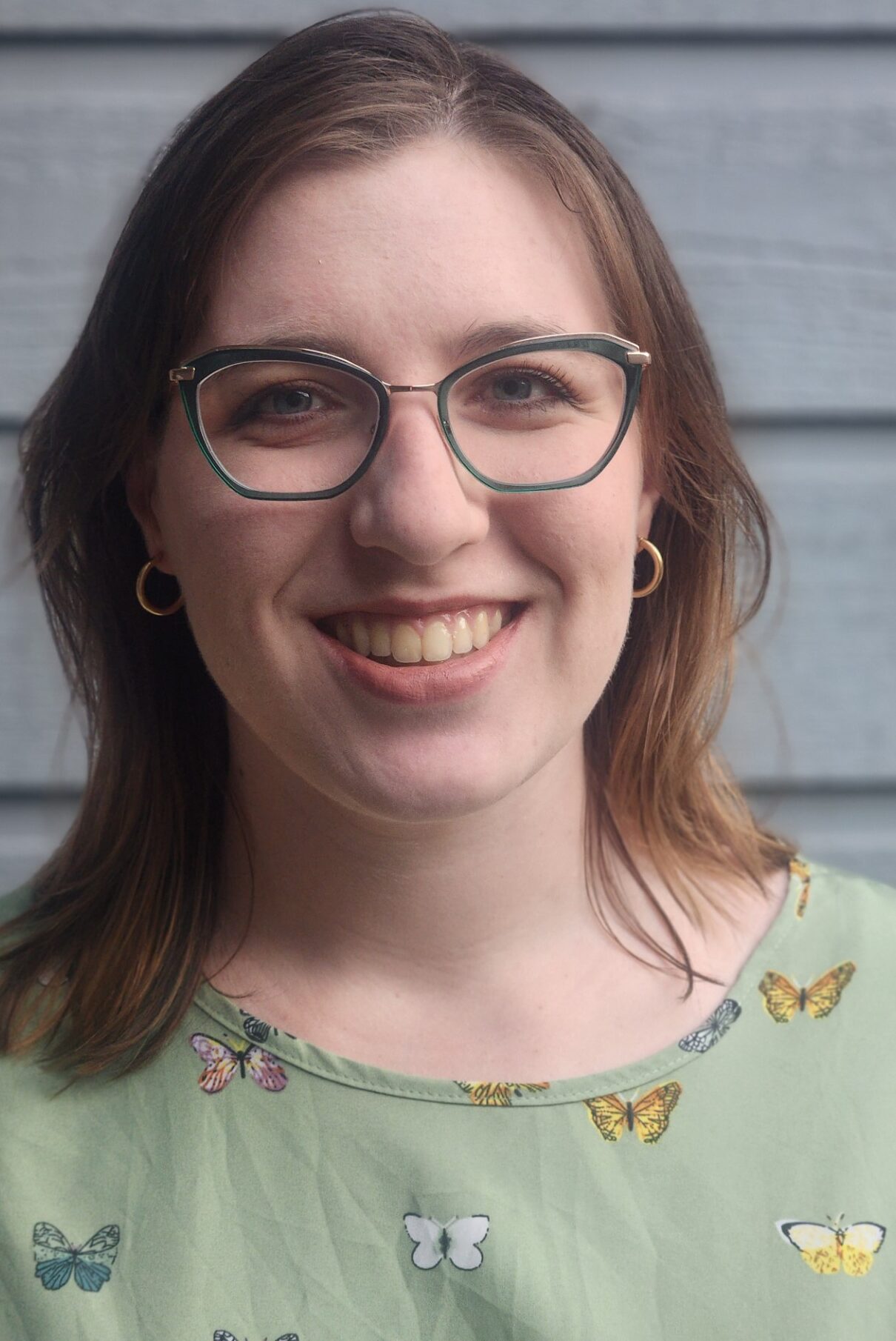Kayli R. Sieber, a Ph.D. student in FCSI member Dr. Hua Yan’s lab in the Department of Biology, is unraveling the complexities of chemosensory development in social insects. Her research focuses on how the chemosensory systems of ants develop and differ from those of non-social insects. Social Hymenoptera, such as ants, possess hundreds more odorant receptor genes than species like flies, and Kayli is exploring how these genes influence the development of olfactory brain circuitry.
Kayli joined Dr. Yan’s lab as an undergraduate senior in 2019, transitioning to a Ph.D. program in 2020. Her journey into entomology began with an undergraduate interest in molecular biology, neuroscience, and insects. “As an undergrad, I developed an interest in entomology after taking a few courses on the subject and participating in an undergraduate research program. When I found Dr. Yan’s lab, I believed it to be the best of both worlds: I could pursue my research interests while also using a very unique insect model,” Kayli explains.
Her thesis primarily falls under the categories of chemosensory development and neuroscience, but she has also explored aging in ants, focusing on how reproduction and social caste influence gene expression with age. One surprising finding from her research revealed that the genes encoding for odorant receptors are sometimes expressed in non-neuronal cells. “Our findings suggest that these non-neuronal cells may be cells that support the function of the ant chemosensory system,” she notes.
Navigating the challenges of scientific research hasn’t always been easy, but Kayli maintains a curious mindset. “One of the ugly truths of scientific research is that setbacks occur. Not every experiment results in a ‘Eureka!’ moment. In my experience, a lot of findings create more questions than they answer,” she shares. “It’s important to keep a curious mind and to ensure your curiosity outweighs your frustration.”
The FCSI has provided Kayli with opportunities to deepen her understanding of sensory systems. She has attended seminars on chemosensation and taken courses on sensory biology, which expanded her knowledge of sensory systems in non-insect species. Additionally, Kayli was appointed as a fellow on the FCSI’s Training Program in Chemosensory Sciences NIH T32 training grant after FCSI members suggested she apply. This funding provided support for her and allowed her to conduct a pilot experiment exploring the relationship between ant caste, olfactory plasticity, and aging.
Through her work with Dr. Yan and the FCSI, Kayli has developed the ability to ask thoughtful scientific questions while maintaining focus on the broader implications of her research. She has also benefited from collaborations, particularly with Dr. Bogdan Sieriebriennikov at New York University, who helped her master state-of-the-art single-nucleus RNA-sequencing techniques to determine the genetic signature within individual neurons. “Without his guidance, my progress would have been significantly hindered, but thanks to his help I can now confidently teach these important modern techniques to other members of the lab,” Kayli says.
Kayli encourages new graduate students to embrace the unique challenges of their journey: “Grad school isn’t a race to be won, it’s a challenging educational experience that every student needs to take and adapt to slightly differently… New students should refrain from trying to compete and compare themselves with their peers and instead collaborate with their peers to foster a positive learning and working environment.”
Kayli’s dedication to advancing the understanding of chemosensory development underscores the importance of her field and highlights the critical role the FCSI plays in supporting groundbreaking research.

